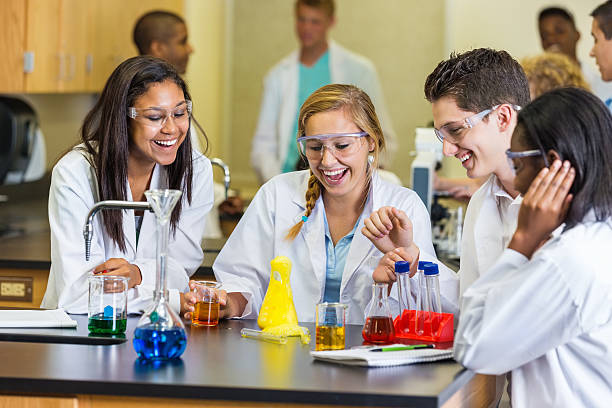With the seniors’ Graduation and Founder’s Day behind us, finals are creeping up on Fieldston students. Among Fieldston students, no final is more controversial than the infamous Science Expo, or “Sexpo” for short. Freshmen, sophomores and juniors all participate in the project and each have an assignment somewhat different from the others, but similar in many ways. An Expo project requires students to perform experiments on their own, answer a scientific question and analyze their results independently. An annual requirement in all science classes, the Expo brings up mixed feelings among the student body. Some wholeheartedly enjoy the Expo, while others loathe having to go through the process that accompanies it. It is impossible to find a consensus, but we are going to explore some of the main benefits and concerns — at least according to Fieldston students.
Some students were adamant about their love for Science Expo. Sam Bienvenue (Form III) began by saying “I think its a wonderful, wonderful assignment.” When asked if he likes it better than a test, his response was automatic. He immediately said, “Absolutely, one hundred percent.” His praise for Science Expo was echoed by other students. Marina Tassan-Solet (Form IV) shared that she loves “how it’s a lot less stressful than most other finals and it offers a great opportunity to put all of our scientific knowledge that has improved over the last year into action without the stress of cramming and studying for a test.” Another sophomore, Benji Mager (Form IV), added that “it is definitely easier when you have two other people with you.” Overall, Science Expo is popular amongst students who don’t enjoy tests; however, that’s not the only reason why students shared their praise.
Some students enjoy Science Expo because of the learning process. Felix Ren (Form IV) believes Expo accurately “demonstrates that you have learned something about conducting a lab and writing a lab report” and that it is “a good way to demonstrate what you’ve learned in a year.” Georgia Riina, another sophomore, shared similar thoughts, saying, “Science Expo is a wonderful experience for students to explore their interests.” Ella Odinec (Form III), in the process of completing her first Biology Science Expo at Fieldston, believes that “Science Expo is an amazing opportunity to be independent and really focus on what you want to learn and what you want to get out of your science year.” Themes of independent learning and exploration are echoed throughout the student body in terms of what Science Expo offers. The project is an opportunity to learn more about how real science is conducted and presented and explore individual interests within science.
Students also raised meaningful criticisms about the expo. A common critique was a lack of freedom and choice, specifically within the chemistry expo. As Tassan-Solet (Form IV) describes, “My least favorite part is the limited freedom. Although the list of experiments serves as a nice guideline for our studies, I would personally prefer having my own ideas tested.” Fieldston students look at the world with curiosity and are driven to explore their own interests. Many wish they could explore their own topics in the expo, design their own experiments and create their own methodology for their experiment.
Some Fieldston students feel like the Science Expo project is overly condensed and not given enough time during the year. As described by Amelia Kwong (Form IV), the effects are twofold: “I would say the time crunch adds a lot of stress to the experience. Learning through an experiment can be overshadowed by deadlines, due dates and difficult grading scales. I also wish there was enough time for it to be practical to explore different interests, and plan experiments different from years past.”
For some students, factors that are entirely out of their control can make or break their expo experience. As stated by Kwong (Form IV), “I think it definitely depends on your group and a lot of other things that might be out of your control.” Kwong raises an interesting point. In some classes, students have control over their group members; in others, they have little choice in the matter. Many sophomores mentioned being thrust into a difficult position, allowed to choose their group but not work with anyone they previously collaborated with on labs or research projects. Other factors like teacher preferences, grading rubrics and class timelines can also influence the experience. Students’ perceptions were undoubtedly skewed by their subjective experiences and unique circumstances.
Science Expo is by no means a perfect final. Chair of the Science Department Dr. Church knows this and acknowledges it. Nonetheless, he believes that Science Expo is an experience that all students should experience. “This is the way that science works in the real world,” he said. “The authenticity, independence, and meaningful thought-provoking processes that students must go through with their projects are more meaningful than a test.” Dr. Church encourages students to embrace some of the difficulties that they face in the project as they are reflective of the realities of actual science and can help students grow in new ways.
As students now begin to wrap up their experiments and prepare to present their findings, Science Expo will be on the minds of all students in these last few weeks. As a community, it will be inspiring to see the work that fellow students have put together during this rewarding, albeit conflicting, experience. Teachers and students alike all await Thursday, June 8, when the Expo will take place, punctuating the end of the science school year at Fieldston.









